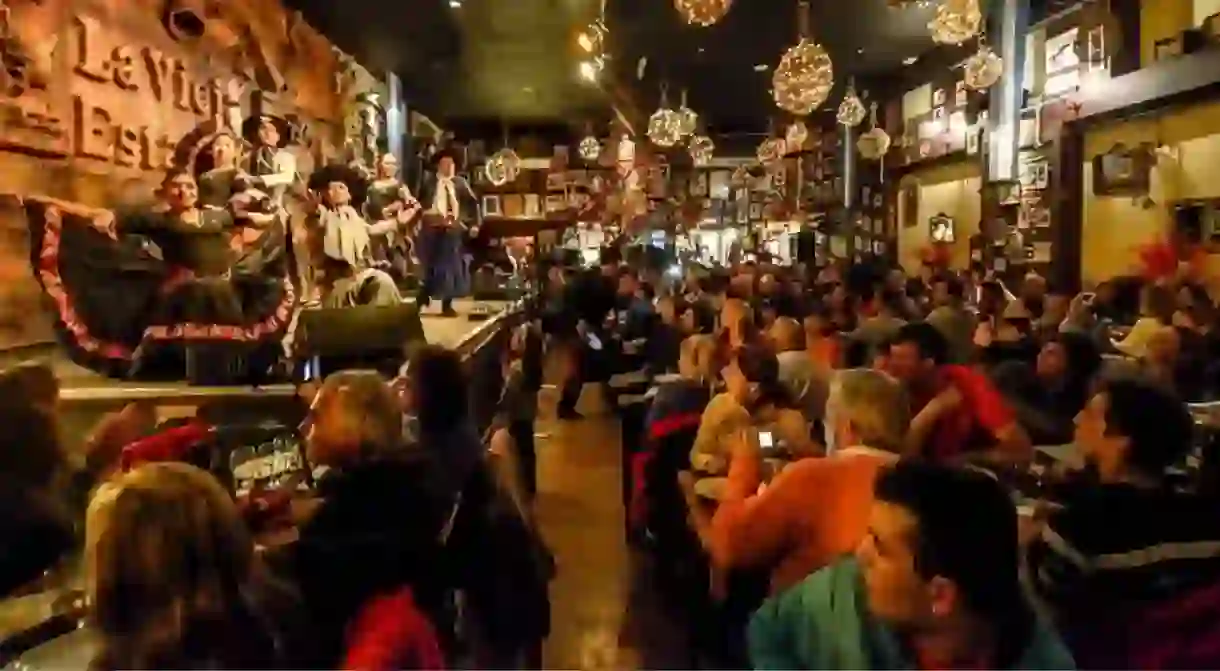A Glimpse into Salta's Peñas and Folklore Culture

In Buenos Aires late night tango milongas are all the rage, whereas up north folkloric peñas are the evening staple, a raucous affair of stark contrast. Yet for the people of Salta these lively folk music parties are more than just entertainment. They are a passionate celebration of the region’s rich cultural history.
Much of the traditional music and dance that defines northern Argentine folklore dates back to the 1500s when Spanish colonial forces ruled the lands. Often referred to as criolla, the customs are an eclectic mix of European and indigenous heritage which have morphed into a new fascinating subculture.

Center to folklore culture is the guacho, a hardy Argentine cowboy who has traditionally lived off the land. When attending a peña, they traditionally don ponchos and wide brim hats before competing with one another to see who has the most macho dance moves. The gaucho is something of an idolized folk hero in the north. He is a figure that everyday citizens aspire to become. A source of cultural pride.

Argentine peñas revolve around four essential themes – music, dance, food and drink – all of which are enjoyed in abundance. These lively communal events are ubiquitous in the north, especially in the capital of Salta where numerous local venues host parties almost every night of the week. Although peñas are held elsewhere in the country, and indeed elsewhere on the continent, it’s a tradition that is quintessentially northern Argentine.
A typical peña is a lively and raucous affair, with traditional music played on drums, guitars, and violins. As each song reaches its crescendo, spectators jump to their feet to clap, stomp and yodel in ecstatic appreciation of the music. Rather than sit back and enjoy the melody, the audience are encouraged to get in on the action, which is an integral part of the success of the show.

The accompanying dance is equally spirited, typically consisting of three traditional genres. The chacarera is a fast-paced partner dance where both genders vigorously perform what’s known as zapeteo, a series of foot stomps in quick succession. Then there is the zamba, Argentina’s official national dance. Adapted from a Peruvian dance of the 1800s, the zamba involves a plenty of twists and turns as well as the joyful waving of handkerchiefs in the air. Finally, malambo is performed by a lone gaucho determined to show off his best moves to woo the apple of his eye. Part entertainment, part demonstration of masculinity, the dance is a sight to behold.
Of course, no such party could be a success without oodles of food and wine. The local Torrontés is a crowd favorite due to its high availability in the region, although other grape varieties plus beer and basic cocktails are consumed with gusto. Filling local dishes such as humitas (mashed up steamed corn filled with cheese) and empanadas (pastries stuffed with meat, chicken or cheese) ensure participants have the energy to celebrate well into the early hours.

Salta has a number of fine peñas where tourists are welcome to get involved. A longtime favorite is La Vieja Estación which is known for its lively stage shows and is particularly popular with the foreign crowd. La Casona del Molino is regarded as more authentic because most of the performers are locals who have brought their own instruments in. Then there is the historical Peña Gauchos de Güemes, an old fashioned adobe construction that replicates a former peña where independence war heroes used to meet to discuss plans for the revolution.
Whichever one you choose, you’re sure to have an amazing night out while paying homage to these captivating regional traditions.
La Vieja Estación, Balcarce 875, 4400 Salta, Argentina, +54 3874217727
La Casona del Molino, Luis Burela 1, 4400 Salta, Argentina, +54 3874342835
Peña Gauchos de Güemes, Av. Uruguay 750, Salta, Argentina, +54 3874217007













